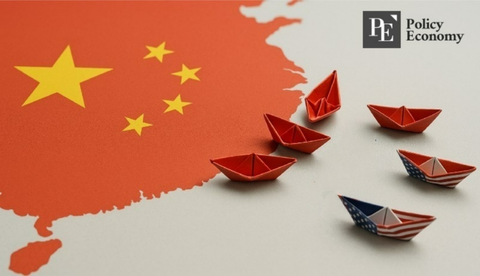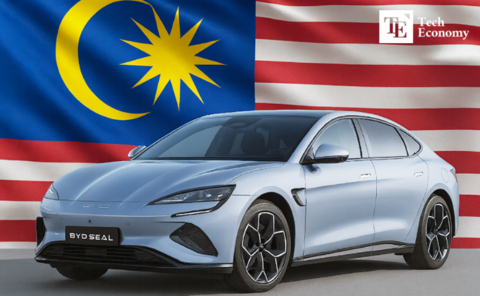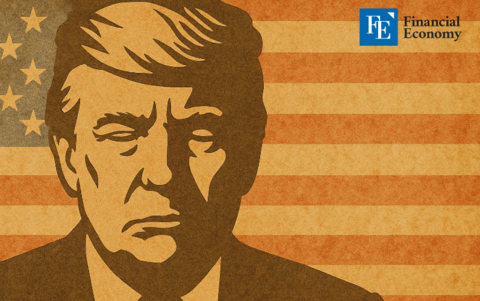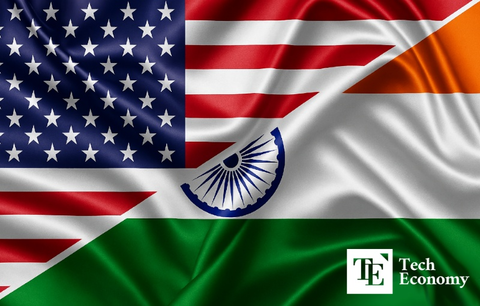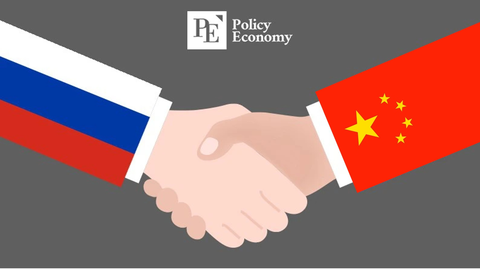The Impact of US Tariff Policy on the EU and Korea: A More Serious Impact Than China
Input
Changed
China's Strategic Advantage and the EU and Mexico's Apprehension Fallout on a Global Scale and South Korea's Unanticipated Obstacle Hyundai: An Exception to the Rule
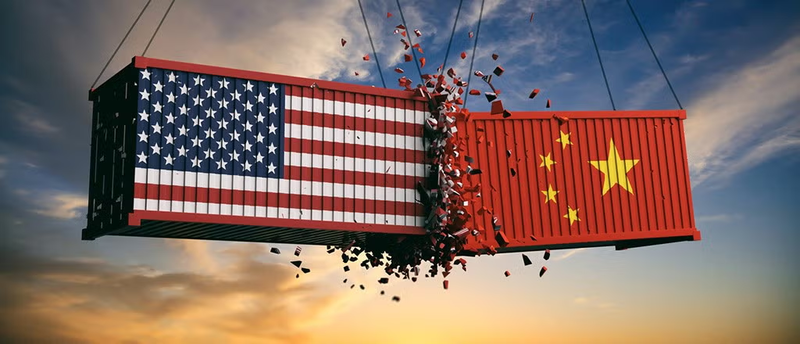
China's Strategic Advantage and the EU and Mexico's Apprehension
The U.S. has long sought to address the trade imbalances and economic influence of China. Consequently, President Donald Trump's pronouncement of a 25% tariff on foreign automobiles, semiconductor chips, and pharmaceuticals was framed as a direct response to these issues. Nevertheless, a more thorough examination of the repercussions of these tariffs demonstrates that the genuine harm will not be inflicted on China, but rather on critical U.S. allies, including the European Union and South Korea. The countries with longstanding trade relationships with the United States are now in economic jeopardy, contrary to claims that China and its dependent trading partners, such as Canada and Mexico, will suffer the most.
Beijing has been discreetly preparing to withstand such economic shifts, despite Trump's assertion that China is the primary target of these new tariffs. In the past decade, China has made a concerted effort to expand its domestic semiconductor and automobile industries, thereby decreasing its dependence on exports to the United States. Many of China's leading manufacturers are currently focusing on markets in Asia, Africa, and South America, where they encounter fewer trade barriers and less economic volatility.
Additionally, China's government has implemented a variety of subsidies and incentives to guarantee that its industries continue to be competitive in the face of U.S. tariffs. Washington's trade disputes have long been centered on the Chinese semiconductor industry, which has received billions in government support to establish self-sufficient production capabilities. Conversely, European and South Korean businesses are significantly more susceptible to fluctuations in the global marketplace due to their lack of state-backed protection.
The European Union (EU) has promptly conveyed profound apprehensions regarding Trump's tariff proposals, with a particular emphasis on the auto industry, which is expected to suffer a substantial blow. The United States has maintained a relatively modest 2.5% tariff on vehicle imports, while the European Union currently imposes a 10% tariff. The European manufacturers are placed in a challenging position as a result of Trump's proposal to increase tariffs on foreign vehicles to 25%, which creates an uneven playing field.
These measures will have a significant impact on German car manufacturers, including BMW, Mercedes-Benz, and Volkswagen. Germany's automotive sector is one of the most export-oriented in the world, with 13% of its vehicle production destined for the United States. These tariffs will result in a substantial increase in the cost of German vehicles for American consumers, potentially resulting in a precipitous decrease in sales.
The German Association of the Automotive Industry (VDA) has referred to the tariffs as a "provocation," cautioning that they could have severe economic repercussions for both Germany and the United States. European leaders, such as German Chancellor Olaf Scholz, have also expressed apprehension that the policy will incite retaliatory tariffs from the EU, thereby exacerbating global trade tensions.
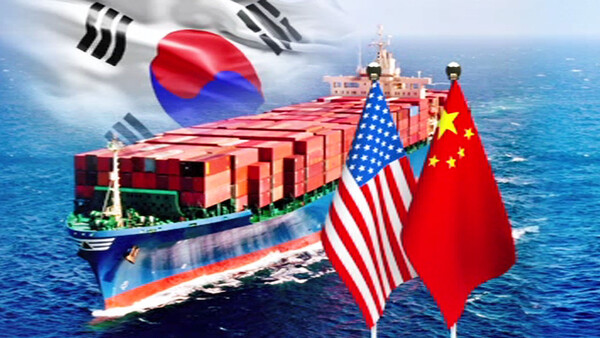
Fallout on a Global Scale and South Korea's Unanticipated Obstacle
The implementation of these tariffs is expected to significantly alter global trade relations. European and South Korean companies, which have historically been significant investors in the U.S. market, may be compelled to reevaluate their long-term strategies. The European Union and South Korea may begin to shift their trade and investment from the United States to alternative markets if Trump's tariffs continue to increase or remain in place.
In the immediate future, American consumers are expected to experience an increase in the price of European and South Korean vehicles, as well as an increase in the cost of consumer electronics, pharmaceuticals, and semiconductor-dependent products. However, the more significant question is whether these tariffs will ultimately backfire, causing America's allies to defect while failing to provide substantial economic benefits in the long term.
Although the primary focus of Trump's tariff rhetoric has been on China, South Korea is at a substantially greater risk of losing than Beijing. In contrast to China, which has been expanding its domestic production capacity and diversifying its export markets, South Korea remains heavily reliant on exports to the United States, particularly in the semiconductor and automotive sectors.
The automotive sector in South Korea is particularly susceptible. Automakers like Hyundai and Kia are largely dependent on exports to the United States, and the new tariffs have the potential to upset this equilibrium. Kia's operations continue to be significantly reliant on components imported from Korea, despite its proactive efforts to relocate production to the United States. Currently, 30-40% of its production capacity is located in Alabama. Kia will be compelled to either absorb the expenses or send them on to consumers in the form of higher prices, as these parts will now be subject to increased costs.
Other Korean automobile manufacturers are in a precarious position in addition to Kia. GM Korea, which functions as a critical production center for General Motors, will encounter significant obstacles. GM Korea is currently ensnared in a predicament, as it is unable to completely relocate production to American soil and is currently facing tariff increases in the United States, where a significant number of its vehicles are exported. If GM is unable to justify the costs, it may contemplate reducing its presence in Korea entirely, which could result in the closure of factories and the loss of jobs.

Hyundai: An Exception to the Rule
It is intriguing that Hyundai may be one of the few Korean manufacturers that can navigate these turbulent trade waters with relative ease. Hyundai has already established a robust manufacturing presence in the United States, in contrast to Kia, which is still in the process of expanding its U.S. production capacity. This strategic positioning may protect Hyundai from the most severe consequences of the tariffs, as a greater proportion of its vehicles are manufactured domestically, which mitigates the immediate impact of increased import costs.
Nevertheless, this does not imply that Hyundai is wholly immune to the repercussions of the tariff. Hyundai's supply chain and international trade strategy may be disrupted by the broader economic repercussions, which include potential retaliatory tariffs from South Korea and the EU. Additionally, the 25% tariff could potentially increase production costs for all manufacturers, including Hyundai, due to the escalating cost of semiconductor chips, which are another industry that is subject to the tariff.
The Trump administration continues to characterize these tariffs as a necessary countermeasure against China's economic policies, but the reality is vastly different. Seoul and Berlin, where significant automotive and semiconductor industries are currently scrambling to adapt to a swiftly changing trade environment, will bear the brunt of the damage, rather than Beijing.
Kia and GM Korea, two Korean manufacturers, are currently experiencing a financial constraint that may result in the closure of their factories and the loss of jobs. In the meantime, European manufacturers are preparing for potential retaliatory measures from the EU and a decline in U.S. sales. Hyundai is currently an exception; however, it is unable to completely circumvent the consequences of these policies.
It is improbable that these tariffs will be successful if their objective was to undermine China's economic position. Alternatively, they may exacerbate the division between the United States and its allies, resulting in new economic uncertainties that could have enduring ill effects. One thing is evident as the global economy prepares for the potential consequences: the true victims of Trump's trade war are not located in the areas that most individuals anticipated.


